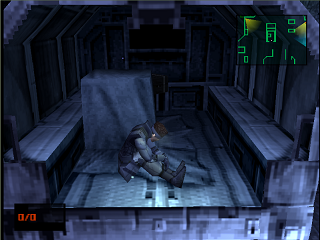

Much of his book concerned his stay in Lhasa, his meetings with the young Dalai Lama, and his thoughts on life in a Buddhist theocracy.īowie was a regular at the Tibetan Buddhist Society by late 1965, a time when he often stayed at his manager Ralph Horton’s apartment, a five-minute walk from the Society’s office in Eccleston Square. But the essential book, Bowie later said, was Heinrich Harrer’s Seven Years in Tibet, the wellspring of Bowie’s first Buddhist-influenced song,“Silly Boy Blue.” Harrer was a German national who’d made his way into Tibet, a country few Westerners had ever visited. “I only live now and I don’t know why,” as David Bowie sang in “Karma Man.”īowie’s interest in Buddhism dated to his early teens, sparked in part by his half-brother Terry, Jack Kerouac’s The Dharma Bums, and Penguin paperbacks on Zen Buddhism by the British convert Christmas Humphreys. Seemingly devoted to the “now,” it was misinterpreted as a Pop religion. To Western youth, Buddhism had no edict-heavy god and its spiritual leaders were best known for protesting war and wearing colorful outfits. In Britain, where Christian observance was in great decline among the young (Lennon’s “we’re more popular than Jesus” comment was specifically about this generation), watery varietals of Buddhism and Hinduism became alluring. Eastern teachings resounded with young celebrities trying to make sense of a world in which “all limits had been magically removed,” as Bernice Martin wrote. The mystery of this burst of religiosity is somewhat dispelled if you consider that many of these people had taken LSD for some time-Tony Visconti and his wife Siegrid tripped once a week for a year, for instance, and John Lennon all but lived on acid in 1966. Donovan and the Beatles became adherents of Maharishi Mahesh Yogi’s Spiritual Regeneration Movement, an offshoot of Hindu teachings centered on the practice of transcendental meditation. Pete Townshend found Meher Baba, Dave Davies was reading Vivekananda’s Rajah Yoga. George Harrison, quoted in Holiday, February 1968.Īll at once, or so it seemed, the British pop aristocracy turned to “Eastern” religion.

The answer’s not pot, but yoga and meditation, and working and discipline, working out your karma. There’s high, and there’s high, and to get really high-I mean so high you can walk on water, that high-that’s where I’m going.

John Mortimer, The New Statesman, 29 September 1967. The much-discussed surrender of John, Paul, George and Ringo to the soothing influence of the Maharishi Mahesh Yogi makes, in my view, depressing reading…The unfortunate Beatles, like many of us, it seems, are in grave danger of coming into contact with the Spirit of Universal Truth, an unhelpful tipple which has in the past turned the great mind of Aldous Huxley to mystical blotting paper. Karma Man ( The Sunday Show (BBC), 1970). I’m very happy to be able to do this I believe it will substantially improve the book. the scads of interviews done with Bowie’s fellow musicians in the years since his death), and most of all, I will be able to correct errors, fix names, and make other improvements that I feared I’d never be able to do. This revision would take into account the new songs that have appeared since it was first published (in early 2015), new sources of information (autobiographies of Woody Woodmansey, John Cambridge, Phil Lancaster, John Hutchinson etc. This means that both my books are now under one roof: an unexpected and quite welcome development.Īnd this means I’ll be able to do a major revision of Rebel Rebel in the medium-term future. Those of you who follow publishing news may have seen that the parent company of Repeater Books, which published Ashes to Ashes, has acquired Zero Books, which published Rebel Rebel.

If you happen to be in the city, please come! Only wrinkle is you have to get tickets beforehand (but they are free!)-I believe there may be a space issue. I believe I’ll talk about various elements that went into the making of 1. On 3 PM on Saturday December 4, I’ll be speaking at the New York Bowie pop-up shop, which is located at 150 Wooster Street (it’s a quick walk to Bowie’s old apartment and the former sites of the Magic Shop and Looking Glass studios, where he made his last albums, if you wanted to do a tour). The songs can be listened to by using the iDroid.One. Songs are contained on cassette tapes which can either be found in the field or unlocked by completing certain missions and objectives. This article lists all of the licensed songs featured in Metal Gear Solid V: The Phantom Pain.


 0 kommentar(er)
0 kommentar(er)
